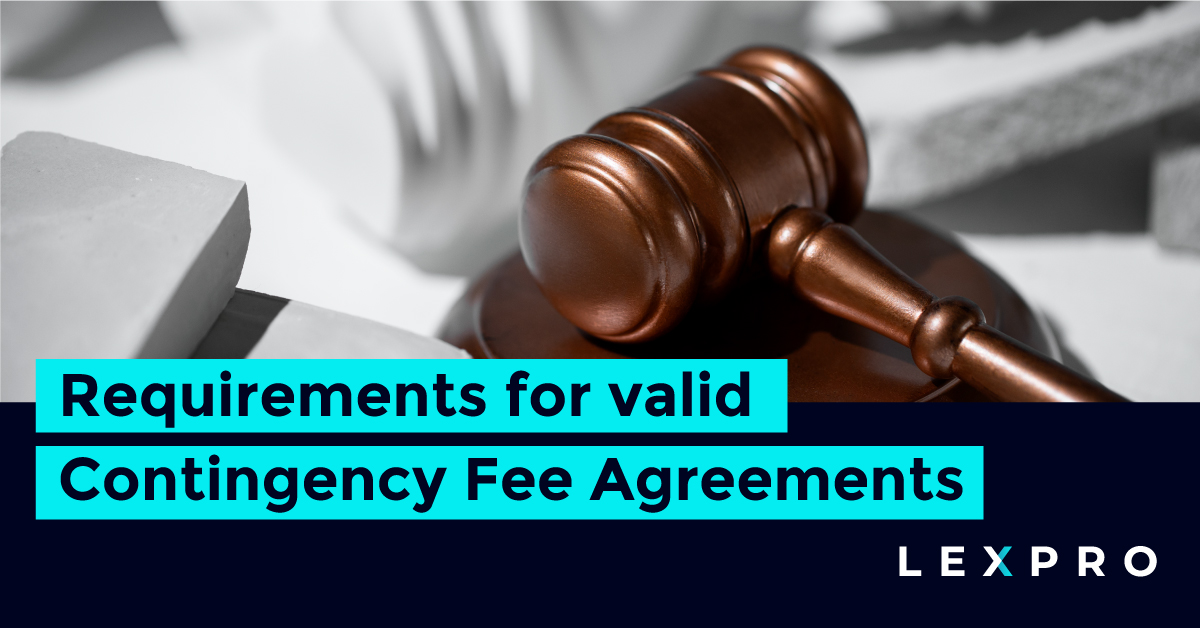Requirements for valid Contingency Fee Agreements
In the recent High Court case Oosthuizen v Rene Fouche Inc.[1] the court had to determine the validity of a Contingency Fee Agreement (CFA). In this case, the court ruled that the CFA was invalid and ordered the attorney to pay the applicants an amount exceeding R 3 mil.
DA Turner AJ provided the following summary of the principles relevant to handling CFAs[2]:
- Non-compliance with the Contingency Fees Act[3] renders a contingency fee agreement invalid. Compliance with both substantive and procedural requirements is required.
- Substantive compliance includes ensuring that the “normal fees” recorded in the CFA can be justified according to the principles of reasonableness.
- Before the CFA is concluded, a full and proper assessment of the client’s prospects of being successful should be undertaken.
- The CFA must be concluded at a sufficiently early stage of the proceedings so that the requirements of the Act are complied with. In particular, at the time that the agreement is concluded, there must be a risk of failure shared between client and attorney which justifies the “success fee” recorded in the CFA.
- The “success fee” allowed by the Contingency Fees Act is not intended as compensation for funding the disbursements of the case or having to wait until a matter is concluded to receive payment. The purpose of the success fee is to compensate the attorney for the prospective risk of undertaking the litigation.
- The entitlement under the Contingency Fees Act to “double” the normal fee is not an automatic entitlement. The percentage allowed for the success fee should also be subjected to the principle of reasonableness, having regard to the risk and the assessment of the prospects of success. This assessment of risk and prospects is undertaken at the time the contingency agreement is concluded.
- Judicial oversight is required in all cases where the matter to which the contingency fee agreement applies is before the court and is settled. Such judicial oversight is a necessary procedural step given the inherent risk of abuse and incentive to profit that the contingency fee agreements carry with them.
- The Act is not intended to be a mechanism for a legal practitioner to charge fees that are unreasonable or to unjustifiably increase his fee simply to place him in a better position to recover the maximum of the success fee which the Act allows.
- An invalid agreement cannot be replaced by a subsequent agreement which seeks to improve or replace aspects of the invalid prior agreement.
The Lexpro Litigation includes a special Stored Fee feature that enables attorneys to record the “normal fees” where CFAs are applicable. These fees do not need to be included in the accounting records for the case. They can be used to calculate the success fee, ensuring compliance with the Contingency Fees Act.
_________________________________________________________________________________________
[1] Oosthuizen and Another v Rene Fouche Incorporated and Others (022383/2022) [2024] ZAGPJHC 683 (26 July 2024)
[2] Ibid at para 51
[3] Contingency Fees Act 66 of 1997








